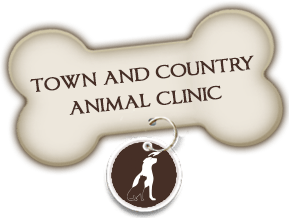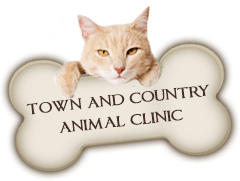We wanted to inform you about the recent concerns surrounding the line of Jerky Treats products. The products in question are labeled in a manner that suggests they are manufactured in Canada or the United States, but are actually imported from China. These include the dried chicken jerky products (tenders, strips or treats), duck jerky products and sweet potato jerky products. There has been concern with an increase in complaints of illness associated with the consumption of these products. The majority of complaints have involved dogs, but some cats have also been affected. No specific products have been recalled, but we wanted to keep you informed and aware of the controversy surrounding the treats.
For those who choose to feed their animals the jerky products, please watch your pet closely for any or all of the following signs that may occur within hours to days of feeding the products:
- Decreased appetite
- Decreased activity
- Vomiting
- Diarrhea (possibly with blood)
- Increased water consumption
- Increased urination
These are the most common symptoms presented with the investigation. Although these seem uncomplicated, there are more severe illness these symptoms can lead to, such as pancreatitis, kidney failure and gastrointestinal bleeding. Also, there have been confirmed deaths for both canines and felines in the cases reported.
The Canadian Food Inspection Agency is the organization that is responsible for protecting the human food supply (including the animals used to produce food such as meat, eggs and dairy products). Their “mandate related to pet food is limited to ensuring that imported pet foods do not introduce serious diseases into Canada that could threaten livestock or public health”. ¹ The CFIA does not regulate pet food in Canada, therefore they are not conducting any tests on these products. We then look to the OVMA for direction. The OVMA is the professional association representing veterinarians across Ontario. The OVMA had received complaints of veterinarians concerned that their patients had fallen ill after eating the jerky products. The OVMA contacted the Canadian Veterinary Medical Association and both have received reports by veterinarians that have seen similar cases.
In the U.S. similar reports and complaints have been reported with the Food and Drug Administration. In response, the FDA has launched extensive testing and has inspected five of the plants in China where the treats originate. They have also organized a group of toxicology labs across North America to investigate for multiple chemical and microbiological contaminants. Since their initial complaints in 2007, the FDA has been actively investigating the cause of illness in pets reported in association with the consumption of chicken jerky products. More recently they have expanded their inquiry to include other jerky products such as duck and sweet potato jerky treats. The FDA has previously issued a cautionary warning regarding chicken jerky products in September of 2007. The FDA is recommending that all consumers who choose to feed their pets these products, watch their animals closely for any or all of the symptoms that may occur. If your pet shows any of these signs, stop feeding the jerky treats. Owners should consult their veterinarian if the signs are severe or persist for more than 24 hours.
There has been no definitive cause or connection to jerky products causing the illness at this point. The FDA will continue to investigate to determine if there is a link between these illness and the jerky treats. Here are some recommendations to help while the investigation is ongoing:
- Research the food and treats you are feeding your pet (where they are manufactured and where the ingredients come from).
- Check for any product advisories or warnings from the U.S. Food and Drug Administration (http://www.fda.gov/) or the Canadian Veterinary Medical Association (http://canadianveterinarians.net/) before choosing your pet’s food or treats.
- Read the label carefully, just because a product is distributed by a Canadian company does not mean it was made in Canada. You may have to phone the toll free number and speak with someone directly at the company to get an accurate answer.
- Read the ingredients to make sure you know what the product contains.
- Follow the feeding guides if it is available on the bag.
- Ask your veterinary hospital if they have received any advisories about any products.
If you have any further questions regarding the issues surrounding the jerky products, or if you are concerned that you pet may be exhibiting any of these symptoms please call us at (519) 250-0099.
https://www.townandcountryanimalclinic.ca/
¹ Canadian Food Inspection Agency, Media Relations, Government of Canada [email protected]
http://www.cbc.ca/marketplace/media/episodes/2012-2013/fightingforfido/pdfs/CFIA_Statement2.pdf






